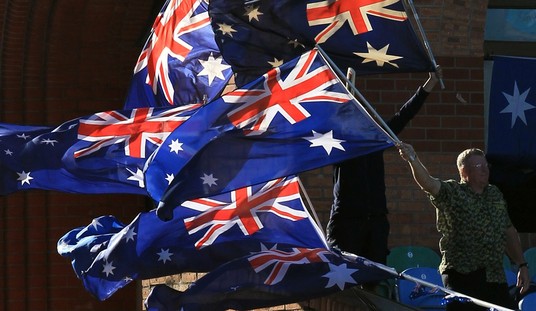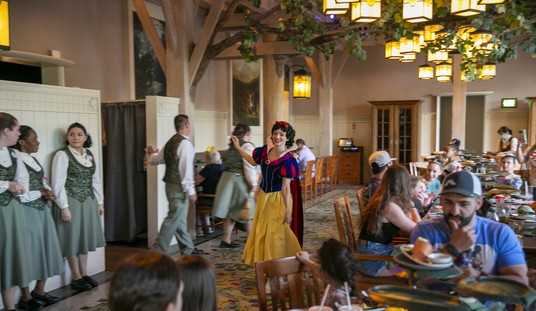WASHINGTON — A former congressman who was one of the foremost champions of human rights during his years on Capitol Hill returned today with one of the escaped Chibok schoolgirls to warn about the escalated threat posed by terror groups in West Africa.
Frank Wolf, who represented the 10th district of Virginia in the House from 1981 to 2015, is now a distinguished senior fellow at the 21st Century Wilberforce Initiative and the Wilson Chair in Religious Freedom at Baylor University.
He told the House Foreign Affairs Subcommittee on Africa and Global Affairs that he traveled to Nigeria in late February, where he listened to “hundreds of individuals in small villages, and remote areas miles off the main roads” in addition to “tribal leaders, pastors, mothers and fathers as well as government officials and our own Embassy personnel.”
Wolf stressed that the death toll wreaked by Boko Haram “makes them the single most deadly terror organization in the world” — with more victims than ISIS.
Boko Haram pledged allegiance to ISIS last year — a vow that makes the U.S. government their sworn enemy in addition to their old foe the Nigerian government, the former congressman stressed.
“Boko Haram attacks villages, conducts drive-by shootings, and uses young girls as suicide bombers. They target politicians and clerics for assassination, focusing on the symbols of Western advancement such as schools, hospitals, and churches, but also mosques. While no one has an exact number, thousands of young girls have been abducted by Boko Haram,” Wolf said.
“Just last month, we commemorated the two-year anniversary of the kidnapping of the Chibok Girls, and despite the loud protests in the West and the #BringBackOurGirls campaign championed by First Lady Michelle Obama, it is extremely doubtful that any of the girls have been released. One counselor with whom we spoke on the ground told us that the girls who have been captured may never return without a major concerted effort by the Nigerian government and the West, and if they do they will have been the victims of sexual violence, and are often times pregnant and will have been forced to convert to Islam.”
A young Nigerian woman who wore dark glasses during the hearing and went by the pseudonym Sa’a for protection described the April 14, 2014, attack on the Government Secondary School in Chibok.
It was the second Boko Haram school attack she survived.
“They marched us out of the school for miles to where their trucks were. Then they asked us to enter the trucks and said that if we did not, they were going to shoot all of us. We were all scared, so we entered the trucks,” Sa’a said. She and a friend decided to jump from their truck while it was careening down a forest road in the dark.
When Sa’a was first offered an opportunity to continue her education in the United States, she “felt like if we go to school again they are going to kidnap us wherever we are.” Her brothers were among those who convinced her to keep studying.
Sa’a began college in the U.S. in January and described her first trip to the National Archives.
“I saw the U.S. Constitution and the Declaration of Independence. I even saw a version of the Magna Carta. I learned that the people who wrote those documents have faced hard times through the years, but they didn’t give up and hope and freedom won. When I heard what Patrick Henry said, about ‘Give me liberty or give me death,’ I realized that was exactly how I felt when I had to decide about jumping out of the truck to escape from Boko Haram,” she added.
The Nigerian government promised to rebuild the Chibok school, but two years later it’s still burned to the ground as Boko Haram left it.
“My mum hid in the forest for months with my siblings before finally fleeing to rejoin my dad in the northwest,” Sa’a said. “…People ask me if it will be safe for me to return to Nigeria. I ask, is it safe for anyone in Northern Nigeria? I lost my dad months ago. It wasn’t the terrorism but the effects of the terrorism.”
“…I have had dreams. With what I have been through, some of the dreams are scary. But now my dreams are good. I have a dream of a safe Nigeria; a Nigeria where girls can go to school without fear of being kidnapped; a Nigeria where girls like me are not made into suicide bombers and little boys are not routinely stolen and turned into terrorists; a Nigeria, where even if the worst happens and children are stolen, that every effort is made for their swift rescue; that those who can help will help; and that those who can speak will speak out for those who can’t speak for themselves.”
Rep. Frederica Wilson (D-Fla.), who has forged forward with the #BringBackOurGirls campaign these two years even as others in Washington let the hashtag fall by the wayside, stressed that “it appears as if genocide is taking place” leaving a “whole generation of children who are not being educated because schools are being destroyed.”
Wilson suggested that world governments have put a “fence of apartheid” around Nigeria and neighboring countries affected by Boko Haram — with an attitude of “leave them there — it’s Africans killing Africans, so why bother?”
“I wonder in my heart and soul, what should we be doing, what can we do as a country?” the congresswoman added. “We can’t just pretend it’s not happening. Do we need to start a revolution? Do we need to march to the White House? Do we need to march to Nigeria? What can we do, all of us as a Congress?”
Chairman Chris Smith (R-N.J.) chalked it up to “gross indifference,” from crimes in the Balkans to the Armenian Genocide that the Obama administration still won’t recognize.
“Every continent has it and we look the other way,” Smith said.
Nigerian human rights lawyer Emmanuel Ogebe stressed that Boko Haram has attacked U.S. citizens, but the State Department hasn’t admitted it.
“Prior to the Chibok abductions which is now a bellwether on international perceptions of Boko Haram, the State Department’s response had been to deny the religious motivation of a rabid jihadist group that had repeatedly declared its goal of overthrowing the state and establishing an extremist Muslim theocracy, to downplay the repeated threats to America going back several years by claiming this is all ‘local,’ presenting arguments rationalizing terrorism by citing emotional disconnect between the central government and northern Muslims, pressing the government to throw money at the problem with no emphasis on victim compensation, and being more critical of the military counteroffensive than of the terrorists’ atrocities,” Ogebe said in testimony submitted to the committee.
“…However, the U.S. is still reluctant to see the insurgency as religious and as part of a global jihad.”








Join the conversation as a VIP Member